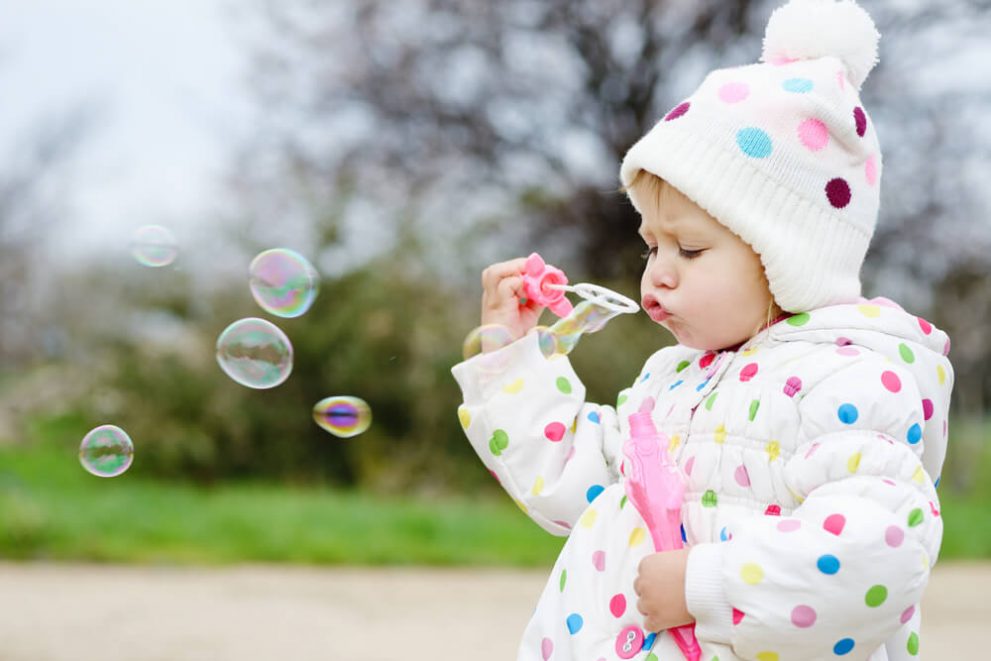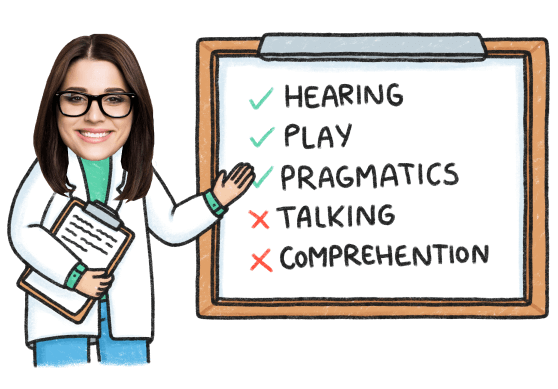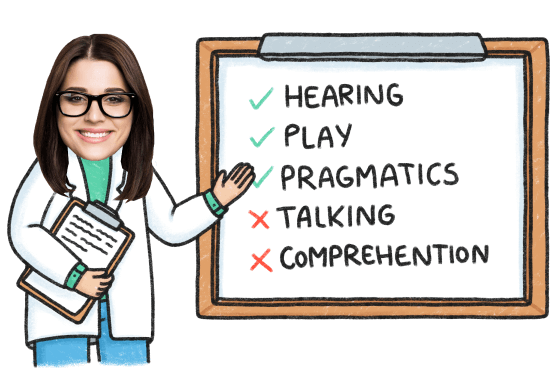Fun at-Home Speech Development Activities for Your Toddler
Feb 2, 2022 When it comes to improving your toddler’s speech, do you sit them down and work on specific language learning activities? Do you only use flashcards? Moreover, how do you keep them entertained?
These are some of the many questions parents and caregivers often wonder when working on their toddler’s speech and language skills. Also, while it can be beneficial to use flashcards, there are various fun activities you can do with your toddler to improve their language learning.
Here are some speech therapy activities for toddlers at home!
In This Article
If you are concerned about your child’s speech development, take the free screener to learn more about milestones, and get tips from a speech therapist!
Arts and Crafts
As MaryAnn Kohl says: “Art is as natural as sunshine and as vital as nourishment.” Toddlers are little explorers. One of the best ways to tap into their creative side is through arts and crafts. You can make animals out of paper plates, handprint art, or use leaves to help your little one expand their vocabularies, and emphasize certain words.
When doing these activities, talk about the colors, shapes, or objects you are using. Also, encourage your toddlers to repeat words in relation to the craft.
You don’t have paint or crafting materials? Have them scribble on worksheets with letters or different shapes. Not only will it improve their fine motor skills, but it will also develop their communication skills (as you have them say the letters or shapes they are working on).
Reading for Toddlers
Reading to your toddler is both fun and educational because it helps expand their vocabulary. Additionally, if you read daily, children become more familiar with the sounds and rhythms of language. Whenever you read to them, ask them to point at certain objects and motivate them to repeat certain words.
Remember, repetition is the mother of all language learning (Latin proverb). And even if your child doesn’t fully say a word but makes an attempt, make sure to acknowledge and praise their effort.
Want to be more creative? Read with an exaggerated intonation. Not only will it keep your child engaged, but it will bring more fun to the reading! Also, read them onomatopoeia books.
BOOM, WOOOOO, OOPS, WOAWWW, MEOW, ROAR
Yes, while they are simply words describing a sound, studies have shown onomatopoeias to be helpful when it comes to reinforcing speech and early language development. Making these sounds will not only make them laugh, but it will push them into making these fun silly sounds as well.
The Speech Blubs app also has a bunch of onomatopoeias or early sounds for kids. Download and start making fun silly sounds as part of your child’s language learning!
Boost Your Child’s Speech Development!
Improve language & communication skills with fun learning!

Here are a few books you can read aloud to your toddler while encouraging their language learning and development:
- “Mr. Brown Can Moo” by Dr. Seuss
- “Brown Bear, Brown Bear, What Do You See?” by Bill Martin, Jr.
- “The Very Hungry Caterpillar” by Eric Carle
- “The Gruffalo” by Julia Donaldson
- “Do You Wear Diapers?” By Tanya Roitman
Singing for Kids
The positive effects of singing with your toddler are endless. In addition to increasing their sensory development, singing can aid when it comes to memory retention. Furthermore, nursery rhymes are known to help toddlers articulate words and expand their vocabulary. By singing slowly and through repetition, you can maximize your child’s language learning.
Whether you sing “Baby Sharks” or the “Wheels on the Bus” a hundred times, repeating the words over and over will have your little tots sing at the top of their lungs while further improving their speech. And if you would like to include more fun, incorporate some gestures for them to imitate.
Moving Your Body
Don’t feel like singing? How about a little dancing! Studies show moving the body and exercising can improve a child’s learning and memory. You may not think so, but you can absolutely reinforce your toddler’s communication skills through physical exercise.
Whether you teach them about the body parts while dancing or create different movement labels, your little angels can totally expand their vocab while dancing their little hearts out.
Bubbles

Who doesn’t love bubbles? We know toddlers are fond of them. But did you know you could also use them to teach? For instance, you can use bubbles as a way to reinforce eye contact. As you blow the bubbles, wait a bit, and give your toddler time to make eye contact before blowing more.
You can also use this fun activity to teach your toddler a specific sound, word, or how to make a request. As you are playing with the bubbles, encourage them to say “more please,” or “my turn” (And as they repeat those words or attempt to, reinforce their response by blowing more bubbles).
Dramatic and Pretend Play
O. Fred Donaldson says, “Children learn as they play. Most importantly, in play, children learn how to learn.” Besides improving their attention and mood, studies show toddlers can work out stress and anxiety through dramatic play. But most of all, toddlers can also better their language development through play.
Many parents or caregivers might not think they’re good at it, but when playing with your toddler (a more naturalistic approach), you are absolutely teaching and improving their communication skills. Indeed, as they enter their world of imagination, practice target sounds, or specific words revolving around the toys they are using.
And don’t be afraid to let your child direct you on the type of child language learning activities they want to pick. Whether it involves playing with a specific toy, you can still work on their speech development.
Have a question for our Speech Therapists?


